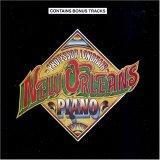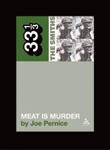
Last year I interviewed Buddy Miller for a
Cleveland Scene feature a little more than a week before the Sweet Harmony Traveling Review – a month long tour featuring Emmylou Harris, Gillian Welch, Patty Griffin and Buddy – played it first summer gig, and just about six weeks before the release of Buddy's
Universal United House of Prayer.
I’d been a fan ever since my friend Will Blythe made a recommendation several years back. In fact, I even bought Buddy’s first four discs (
Your Love and Other Lies,
Poison Love,
Cruel Moon and
Midnight and Lonesome) with money from my own pocket – a statement as large as Lyle Lovett’s band if you know anything about the amount of free discs and equally low pay music writers receive. Each has been well worth it.
The excellent photo of the self-deprecating Mr. Miller was taken by Nashville photographer
Thomas Petillo (thanks Thomas).
I spoke with Buddy Miller on August 4, 2004.
Q: It’s a pleasure to talk to you.
A: Yeah, likewise. I’m sorry. I’m just driving in the car on the way someplace, but if that’s okay with you it’s great by me.
Q: That’s fine. You’re not going to put yourself at risk, right?
A: Um, no more than usual.
Q: Okay, good. I’d just rather not do Buddy Miller’s last interview.
A: I hope I can be of some help to you on this thing. I’m not very good at the interview.
Q: Well, I read that you didn’t like talking on the phone but it seems like everybody else has gone into hiding and left you with the chore. Sorry about that.
A: Yeah, I know that people are in the studio and Dave and Gill I think are in Europe, so here I am. You’re stuck with me.
Q: Let me ask you a couple of quick questions that I haven’t heard you talk about in other interviews. You’re born when and where?
A: I was born in Fairborn, Ohio in 1952.
Q: Okay. I know you spent time in Texas and I know you spent time in New Jersey and I know you spent time in New York and California, but you grew up in Ohio.
A: No, I was born in Ohio. My father was in the Air Force, and so we moved around. I was born in Fairborn, outside of Yellow Springs, and then he moved to Annapolis and he was working at the Naval Academy, and then we moved to Pennsylvania and then to New Jersey.
Q: And New Jersey’s around the time of high school?
A: Yeah, kind of where you grow up, I guess.
Q: Do you have older siblings?
A: No, I’m the oldest.
Q: Are either of your parents musical?
A: No.
Q: So where do you learn about music? If you’re the oldest and your parents aren’t musical, where do you learn what to like?
A: Well, that’s a good question. I just think some people are just drawn to it, and I was apparently drawn to it when I was just crawling around and probably couldn’t speak. I was told that I just loved music, and I think they had a record player and there was a radio, and it’s just kind of what grabbed my attention and still does.
Q: Do you remember the first record you ever bought with your own money?
A: Um, well you know, I think I was too young to have my own money because I was a tiny little kid, but that "Flying Purple People Eaters" song. It might’ve been that or it might’ve been the Everlys. I don’t know what it was but, I mean, I was a tiny little kid and I liked that song.
Q: I think when I was five I had a copy of "Yummy, Yummy, Yummy" by the Ohio Express, so I can appreciate that a young child might have the Flying Purple People Eaters song.
A: Yeah. I mean, it actually had a pretty cool groove to it. At least it still does in my mind.
Q: First guitar?
A: Uh, the first guitar I remember, I had one little nylon string generic guitar, but then I got an electric guitar, which is what I wanted, and the first one was a Zimgar.
Q: And about how old are you?
A: Uh, nine maybe. Ten. I don’t know.
Q: Is that like a birthday present? Christmas present? Or are you just a good kid and you deserve things?
A: I think it was a birthday present. It was. My first good guitar came several years later.
Q: But you’re in a band by the time you’re 15, 16 years old?
A: I think younger than that. As soon as I could play I wanted to play with people, because it just makes more noise. And then as soon as I could get an electric guitar, which is what I wanted, I wanted to make as much noise as we could, so yeah we were in the garage and in the basement. Probably more like 12 and 13.
Q: So it only takes you 30 years of playing guitar and playing in bands to become an overnight sensation.
A: Now don’t make fun of me now.
Q: I’m not making fun of you.
A: No, I know. I’m just kidding. Yeah, I guess I just don’t have a whole lot of focus maybe. I don’t know. I moved around a whole lot. I think that doesn’t help.
Q: I also heard somebody say that you were going to end up being a star in spite of yourself, as if maybe you had added to the resistance, or hadn’t really been interested in that kind of thing.
A: Well, I just like to play. I never really had a lot of - I don’t know if you’d call it drive or whatever, but the ambition to like be a star. I just love playing, and would move around to just get into different places where there was a lot of playing. I ended up in Austin that way. That’s where I met Julie. We played in a band together.
Q: And how long did you play with Jim Lauderdale? I mean, I know you’re still working with him and stuff, but about how long were you Jim Lauderdale’s guitar player?
A: I want to think it was maybe six years. Something like that. I’m not sure. I met Jim way before that. We were good friends when we were both living in New York in like 1980. We’ve had bands and run parallel paths and played together, so I’ve known Jim for quite a while.
Q: And then like eight or nine years with Emmylou?
A: Eight, yeah.
Q: You’re likely the most visible player of Wandre guitars. Can you tell me about the sound of the Wandre and why you like it? I mean, I know that Teles sound thin and Les Pauls sound fat, but can you tell me why you like the sound of the Wandre?
A: Well, it’s actually a pretty versatile sounding guitar. It can sound a little Tele-like, a little Strat-like, but it has its own sound to it. Really, the Wandres are just a big mess. But they’re like your favorite old shirt that has too many holes in it, you know, but you’ve had for 15 years. It has the elbows, your arm’s coming through, and it just doesn’t even look good in anybody’s eye anymore, but you can’t stop wearing it. And that’s the way it is with me. I’m just so comfortable with them. I’ve got a lot of good guitars by now, you know. I didn’t used to. When I first started playing with Emmylou I pretty much just had the Wandres and one or two other things, but now I’ve got a lot of, really, what you’d think of as good guitars, but all my hand feels comfortable on are those Wandres.
Q: How’s the neck? The Fender neck is thinner than a Gibson neck. Where, on that scale, is the Wandre?
A: It’s like big and chunky and the fingerboard is flat. It’s an Italian guitar. The fingerboard is completely flat, which isn’t really that comfortable, and it’s kind of deep and the back of the neck is plastic, or plastic-covered aluminum I guess. I don’t even know. It’s a mess and it’s sort of got a lot of plastic in it, so that means it breaks a lot and you’ve got to dump some glue in it but then it’s still got that same feel of your favorite old shirt.
Q: Does it still have original pickups?
A: Oh, it’s got original everything except the strings.
Q: How does this Sweet Harmony tour come about, and what’s the format like? Is there going to be a band or is this just going to be interchangeable acoustic part for a couple hours?
A: Well, I think Patty is going to have a band. Outside of that I’m not really sure what’s going to happen. We haven’t rehearsed yet, and actually we haven’t even talked about it all together yet. And I don’t know when we’re going to. We’re supposed to rehearse like a day or two before we go out, so really I could safely say we don’t know what we’re doing. But it’s going to be great. I mean, I’d pay a lot of money just to go and listen to those three girls every night.
Q: You’re the only male who gets billing.
A: Well, there’s Dave Rawlings. I guess we get our own dressing room is how I look at it.
Q: Any idea how many people this is going to end up being? I mean, there’s five as far as front people, and if Patty brings a band that’s four more. You’ve got to have a crew. Are we talking about fifteen people on this trip?
A: That sounds about right. I don’t know. I’m not sure what all we’ve got. I mean, really we haven’t been able to get together. I know that the crew people have talked among themselves, but we’re getting together next week and we’re going to sit around and play some songs and see what happens.
Q: And figure out, All right, you do three and then I’ll do three and then we’ll do two together? That kind of logistical work.
A: That’s my guess, but who knows? And you know what? I think it’s going to be sort of an evolving. It might be something one night, and it could be something else another night. I hope.
Q: Well, that’s the way you do it. That’s the way Emmylou does it. I haven’t seen, I think those are the only two shows that I’ve seen, but ya’ll change set lists from night to night.
A: Oh yeah. And I like surprises.
Q: I read where someone called you “a country Richard Thompson.” Is that a comfortable label? Do you recognize a county Richard Thompson in the mirror when you go to shave in the morning? Or does that just feel weird.
A: I certainly take that as a compliment. And I think being called country as a compliment. I don’t know. I don’t know. I’m a Richard Thompson fan. Who wouldn’t be?
Q: You’re right there. Are your parents Southern?
A: No.
Q: Where does your voice come from? And I know that’s an impossible question, but can you give it a shot?
A: I don’t know. I don’t know. When I open up my mouth that’s what it kind of sounds like. I guess just listening to the music I listen to.
Q: I know you play some blues-styled material, and I know that country’s not what country used to be, but I don’t see really how you can sing lead on a song and it not be a country song by the end. Is it all right if I feel that way?
A: I don’t necessarily think that way. I just think I’m singing a song, but I think my wife thinks that way. That’s why she doesn’t want me singing on most of her songs. She thinks it starts sounding too country, and that’s why she doesn’t let me sing that much on her records.
Q: But it’s a good country. It’s like the honky tonk wing of country.
A: Well, that’s the music I love. Or a lot of it. I love all kinds of music. I could go to a bluegrass festival one weekend and then the next weekend I went to Woodstock. And then I’d go to the Fillmore all the time. I liked it all.
Q: Is there any type of music that you’d rather not listen to? What about jazz? Classical? Is there anything that you’re not interested in musically?
A: No, I’ve got respect for most all of it. And there’s some jazz I listen to, although I’m not allowed to around the house during waking hours. Julie and I, we don’t see eye to eye on all music, but there’s a big point of intersection for us. I don’t listen to that much music. If I do it’s usually really old stuff.
I have a big collection of music, and I take that collection of music with me but I don’t keep up with much of what’s new, in almost any genre. I should a little bit more. I do hear some things that I really like.
Q: Well, if you’re like me, sometimes when you’re surrounded by musicians it’s like a full-time job just listening to the music that your friends were making. And you have a moral obligation to listen to your friends’ CD when they bring you a copy.
A: Right.
Q: And so there’s not a lot of time to listen to anything else. I would guess you’re close to being in that situation, aren’t you?
A: Yeah, and I do get to listen to all my friends’ music and that’s a lot of what I listen to. And I do try to keep up with things too. I do listen to a fair amount of music actually, and I listen to a lot on the road, but when I’m home I try to work on it.
Q: Well, tell me about the road music. Do you take a CD player? An MP3 player?
A: I’m an iPod guy.
Q: For how long?
A: Well, since they came out with them, I guess. I got that first generation.
Q: You produce, you write, you play guitar, you have your own recording career, you work with all these other people. Do you need all of that? Could you do just one thing? Could you be just Buddy Miller, guitar player? Or could you just be Buddy Miller, songwriter? Are there any of those that you could let go?
A: Well, I love playing live. That might be my favorite thing to do, but I love it all. Working in the studio, it’s a different kind of being creative. And it’s harder. And I enjoy the challenge, but just playing live usually feels so good that that’s something I want to do as long as I can get away with it.
Q: You once said that you’d play with Emmylou forever unless she fired you. Do you still feel that way?
A: Yeah, are you kidding me?
Q: I’m just asking. I was talking to David Sanborn, and he’s played with everybody it seems like. And he was talking about being onstage with Eric Clapton and Clapton’s playing Layla and just kind of having one of those moments of realization. You still get that with Emmylou, right?
A: Every night that I have that voice in my monitor. Yeah, I get that with Emmylou, and I’ll play with her as long as she wants me there.
Q: You’ve got a new record (
Universal United) coming out soon. Are you excited about it?
A: Yeah, I’m actually happy with some of it. I mean, I won’t listen to it, but I feel pretty good about a lot of it. It’s got a theme to it and I think it holds up.
Q: So you’re not ready to go back and listen to it quite yet.
A: You know, I heard enough of it when I was working on it. Usually I’ll end up hearing it about a year later. And then hopefully it’s okay.
Q: Just to give yourself some distance and some objectivity.
A: Yeah, my whole goal in making a record is to make something that doesn’t make me cringe a year later.
Q: Are you still not as comfortable in the studio as a performer as you are onstage?
A: No, that’s just not what I do.
Q: What about as a session player, a musician on someone else’s record?
A: At my own place I’m fairly comfortable, but I’m not one of those guys that can have a 10, a 2 and a 6. With every note I play I feel like I’m ruining somebody’s career. And it makes me sweat too much. I’d just as soon, you know, do the things I do. I don’t think that’s one of them. There’s a lot of guys that are amazing at that.
Q: When’s the last time you had a vacation, Buddy?
A: It’s all a vacation. It’s one big vacation.
Q: Okay, let me ask this a different way. When’s the last time you didn’t touch the guitar for a week?
A: Well, I don’t know, but why would I want to do that?
END






